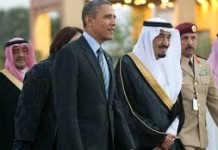Context
 Pakistan’s ubiquitous feelings of distrust have their origin in a general sense of insecurity. For one thing, Pakistan believes that India has never accepted its legitimacy as a nation; as proof, it cites India’s active support of East Pakistan (now Bangladesh) independence in 1971. On the other hand, Afghanistan has always questioned the validity of the border separating it from Pakistan, the Durand Line. Because of this scarred legacy, Pakistan initiated its nuclear program, but as soon as it had the bomb, it feared that its adversaries were attempting to destabilize the country in order to justify taking it away. So the question arises: who wants to weaken Pakistan and is this threat mostly internal or external?
Pakistan’s ubiquitous feelings of distrust have their origin in a general sense of insecurity. For one thing, Pakistan believes that India has never accepted its legitimacy as a nation; as proof, it cites India’s active support of East Pakistan (now Bangladesh) independence in 1971. On the other hand, Afghanistan has always questioned the validity of the border separating it from Pakistan, the Durand Line. Because of this scarred legacy, Pakistan initiated its nuclear program, but as soon as it had the bomb, it feared that its adversaries were attempting to destabilize the country in order to justify taking it away. So the question arises: who wants to weaken Pakistan and is this threat mostly internal or external?
Analysis
This is the quandary facing the security apparatus of Pakistan, including the military. The following explanations have been offered:
- The US desires to weaken Pakistan so as to prevent it from garnering any benefit from the Afghan conflict, if and when US decides to leave. Although Pakistan is a major ally, the US could repeat its course at the end of the Cold War and abandon Pakistan, once its objectives in Afghanistan are achieved with Pakistan’s help.In addition, rather than looking out for the interests of its ally, the US is working to place India, Pakistan’s enemy, in the driving seat in Afghanistan so as to counter the rise of China; the latter is a close, long-term strategic partner of Pakistan, which also has adversarial relations with India.To counter this perception and undo past mistakes, such as the “Pressler Amendment” of 1985, the Kerry-Lugar bill envisions a long-term strategic partnership with Pakistan and its people. The controversy developed when some of the provisions of the bill appeared to aim at weakening its powerful military, the very institution in Pakistan whose help the US needs to stabilize Afghanistan and rid the world of Al Qaeda. Thus the intentions of the US appear contradictory to Pakistan, while the US believes that the Pakistani military secretly aids the Taliban, which carries out attacks against coalition forces in Afghanistan. So it appears that the real goal of the Kerry-Lugar Bill is to correct the behavior of an ally.
- The extremists and Jihadists have been attacking the Pakistani government because they believe it has departed from Islamic ideology by supporting the US, which is trying to occupy Afghanistan. These groups believe that the US is hostile to Muslims all over the world and through its alliance with Israel and India is determined to weaken Pakistan. Furthermore, the extremists believe that the corrupt and inept politicians of the country are ruling through an unjust and un-Islamic system with western aid and support, and this system needs to change to Shariah.
With US moral credibility damaged internationally, it is difficult to make its case to Muslims. At the same time, people recognize that the extremists have only brought death and destruction to Muslims, whose cause it supposedly champions.
On the other hand, the US drone attacks in the tribal areas of Pakistan are having both desirable and undesirable effects. They achieve their immediate objectives, but at the cost of potentially dangerous precedents and consequences. Not only are these attacks seen as a violation of national sovereignty, but they also appear to substantiate the claim that America is out to get Muslims. Furthermore, reports of the civilian deaths resulting from these attacks are fodder for the extremist’s recruiting efforts. The negative psychological effects of the drone attacks can be seen in angry media discussions of the provisions of the Kerry-Lugar bill.
In short, to the Pakistani public, countermeasures like the drone attacks appear to justify the extremist case against the US, helping to facilitate growing Anti-Americanism in Pakistan. That is why the nation’s government and military, while continuing to assist the US, does so discreetly and without fanfare. But when the extremists attack the country, it perceives yet another attempt to destabilize it.
Amidst the confusion, there are signs of a new public consensus which sees both the extremists and the west as trying to weaken Pakistan; this is reflected in the escalating anti-extremism and anti-Americanism pervading the country. So Pakistan appears to want to redefine its identity, while rejecting the readily available options.
Tell US What You Think
Feedback@politact.com



